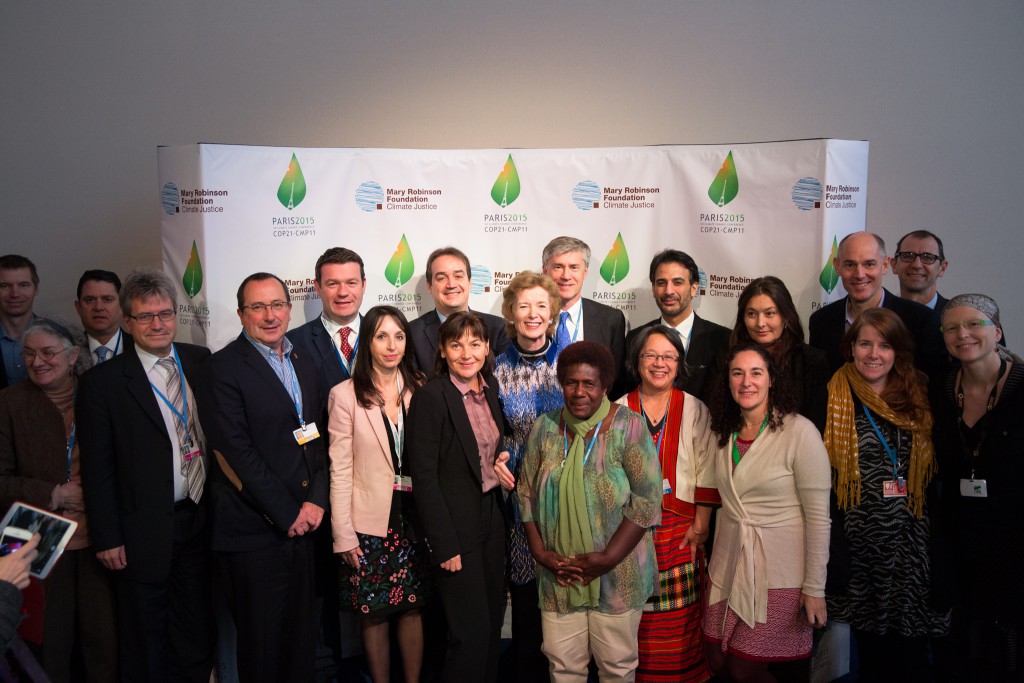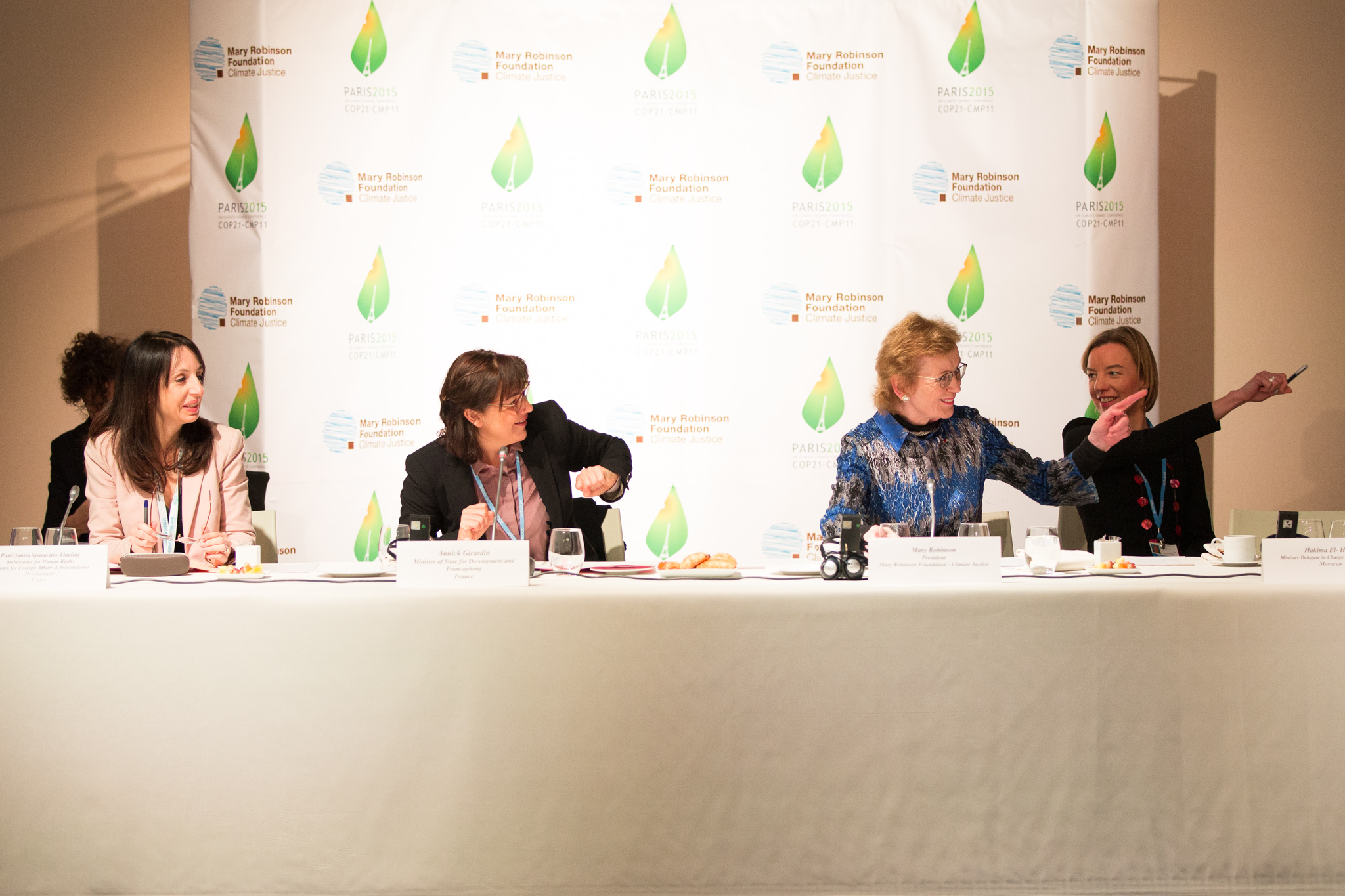In the final days of the negotiations of the new climate agreement the Mary Robinson Foundation – Climate Justice and the French Presidency of the 21st session of the Conference of the Parties convened a Climate Justice Dialogue to highlight the links between climate policy and human rights.
Ms Annick Girardin, French Minister of State for Development and Francophony, co-chaired the dialogue on behalf of the COP Presidency in place of Laurent Fabius, who had led negotiations into the early hours of Thursday morning. Minister Giardin said that the Paris agreement must offer concrete solutions to protect people in the most vulnerable situations. She said:
“I would like to assure you that COP 21 will not be the end but a turning point towards a new history. It must be the starting point towards a better word, a fairer world, a more sustainable world.”
In her opening remarks, Mary Robinson, President, Mary Robinson Foundation – Climate Justice, recalled that it was 67 years to the day since the Paris played host to the signing of the Universal Declaration on Human Rights.
“The world was a very different place then and I hope that 67 years from now, in 2082 it will also be a very different place. I hope that by then my grandchildren will be living in a zero carbon society, that is resilient and equitable, where the rule of law is upheld and everyone has access to justice.” Mrs. Robinson said.
The Climate Justice Dialogue brought together a diverse group of stakeholders from government, UN agencies, trade unions, business, human rights commissions, faith groups, women’s groups, youth, indigenous representatives and community leaders.

Some of the participants of the high-level Breakfast Meeting on the occasion of Human Rights Day at COP21. Paris, 10 December 2015
All participants acknowledged that the governments who are in the final stages of negotiations must conclude a people-centred agreement that delivers climate justice – as described by the Heads of State and Government on the opening day of COP21 – in order to protect those people most vulnerable to the impacts of climate change.
The group discussed two core principles of climate justice – how to maximise the benefits and minimise the human rights risks posed by climate action and how to enable meaningful participation in the climate policy making and the design, planning and implementation of responses to climate change.
Ensuring human rights and gender equality informed the design, planning and implementation of climate policy was raised by several members of the group including Bridget Burns, Advocacy and Communications Director at the Women’s Environment and Development Organisation, and Yannick Glemarec, Assistant Secretary General, UN Women.
Adriana Murillo Ruin from the Costa Rican Ministry of Foreign Affairs said that the integration of human rights and gender equality into climate policy can improve policy effectiveness and result in outcomes that benefit people and the planet. “We do not believe in the dichotomy between human development and emissions cuts” she said.
The role of indigenous people in climate solutions was discussed in some detail. Hindou Oumarou Ibrahim, Coordinator of the Association des Femmes Peules Autochtones du Tchad (Fulani Indigenous Women’s Association of Chad), and Natan Obed, President of the Inuit Tapiriit Kanatami and an indigenous representative on the Canadian delegation, told the participants that securing the rights of indigenous people was key to ensuring the protection of traditional knowledge of ecosystem preservation. Mr. Obed called on more countries to follow Canada’s example and enable the participation of indigenous people at all levels of policy making.
Considering the role of business, Phil Bloomer, Director, Business and Human Rights Resource Centre, said that more and more actors in the private sector are beginning to realise that the only way they can take part in a fast transition is to ensure that it is a fair transition.
If there were any doubts about what was at stake at COP21 in Paris, these were dispelled by Ursula Rakova, a woman who knows first-hand the tragedy of climate change. Ursula is Executive Director of an organisation called Tulele Peisa (Sailing The Waves On Our Own). She established Tulele Peisa to assist Tulun and Carteret Islanders who face an uncertain future as rising sea levels encroach on their low lying island homes. She said:
“I come from a matriarchal society, where land is passed down from mother to daughter, but I will not be able to pass down any land to my daughter or granddaughter. Give us our rights so we can continue to live where we are from.”
Related Links
Find out more about our work on Human Rights and Climate Change
Rights for Action – Putting People at the Centre of Action on Climate Change
Women’s Participation – An Enabler of Climate Justice


